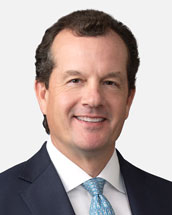In brief
It comes as no surprise that class actions targeting greenwashing claims — or green advertising — continue to rise in number and complexity.
Although consumer demand and regulatory actions have increasingly motivated businesses to make public statements about their sustainability practices and commitments to climate change, now is the time to take a step back and reevaluate those sustainability claims and marketing. Vague, unverified and unsubstantiated claims can all too easily lead to allegations of greenwashing.
This article, also published on Law360, discusses the most recent developments in greenwashing litigation, which show a shift in focus to carbon-neutrality claims and related sustainability claims. It also covers the constantly evolving regulatory landscape and practical ways for your business to avoid the risks of greenwashing litigation.
Background
The surge in greenwashing litigation has long been attributed to heightened consumer awareness and concern for climate change. As such concerns continue to rise, businesses are forced to allocate more time, attention and resources to promoting environmentally friendly business practices, products or services — all while falling under the scrutiny of greenwashing allegations.
Although plaintiffs historically have targeted businesses that tout their products or services as environmentally friendly — zeroing in on buzzwords like “eco-friendly” or “recyclable” — recent trends show growing scrutiny and an increase in lawsuits challenging broader sustainability representations and long-term sustainability goals.
Common examples of sustainability representations include (1) ambitious climate pledges, including carbon-neutral representations and statements about a business’s long-term climate commitments (i.e., net-zero pledges), and (2) the use of selective sustainability initiatives in efforts to distract from overall business practices.
Such representations can manifest into greenwashing allegations quickly, for example, when businesses claim that they are on track to reduce their greenhouse gas emissions when no credible plan is in place, when they are vague about their operations or materials used in their products, or when they simply imply that a minor improvement in their business practices has a major effect on climate change.
Recent Developments and Legal Challenges
The shift in class action claims regarding businesses making broader sustainability representations and long-term sustainability goals can easily be seen within the airline industry.
Since mid-2023, the airline industry has been put under a microscope due to airlines making sustainability claims and statements regarding their long-term sustainability goals. In these suits alleging fraud and false advertising, plaintiffs specifically focus on business practices such as purchasing carbon credits to offset emissions.
For example, in 2023’s Berrin v. Delta Air Lines Inc.,[1] in the U.S. District Court for the Central District of California, the plaintiffs asserted claims under California’s Unfair Competition Law, False Advertising Law and Consumers Legal Remedies Act based on Delta marketing itself as a “carbon-neutral” airline.
The complaint specifically called out Delta’s business practices and representations that relied on purchasing carbon credits to offset its carbon emissions.
Notably, earlier this year, the presiding judge in the case dismissed the plaintiff’s Unfair Competition Law and False Advertising Law claims for failure to prove standing for injunctive relief. In doing so, the court noted that although the plaintiff claimed to be a loyal customer of Delta who hoped to continue using their services in the future, there were no specific allegations to support this in the complaint.
Without evidence of an intent to purchase flights from Delta in the future, the court found that the plaintiff lacked standing but allowed the plaintiff to amend the complaint, indicating not only that an amendment could quickly revive the claims but also its interest in carbon neutrality-related greenwashing.
Since Delta, there has been a spike in identical lawsuits — all alleging fraudulent advertising under different state laws related to carbon neutrality, purchasing carbon credits to offset emissions, and selective sustainability initiatives in efforts to distract consumers from overall business practices.
For example, Zajac v. United Airlines Inc. is a 2023 case in the U.S. District for the District of Maryland asserting fraud and false advertising claims under the Maryland Consumer Protection Act based on United’s advertisements related to using “sustainable airline fuel” under its “Eco-skies” program and alleged misrepresentations concerning its environmental commitments.[2]
Simijanovic v. Koninklijke Luchtvaart Maatschappij NV is a 2023 case in the U.S. District Court for the Eastern District of Michigan asserting fraud and false advertising claims under the Michigan Consumer Protection Act based on KLM’s advertisements related to its climate-related corporate targets, sustainability resolutions, biofuel usage and “fly responsibly” representations.[3]
To add fuel to the fire, recent court rulings show businesses are likely to face challenges defending carbon-neutrality claims — finding the term can be misleading in specific contexts and leaving the question open for juries.
For example, in the case of Dorris v. Danone Waters of America[4], in the U.S. District Court for the Southern District of New York, the plaintiffs filed a class action alleging that the manufacturer and seller of Evian Spring Water made false and misleading representations about the “carbon neutrality” of its product while largely ignoring the fact that its manufacturing processes caused significant carbon emissions.
The plaintiffs specifically called out the defendant’s business practice of purchasing carbon offsets as misleading under the Federal Trade Commission Green Guides. Despite being “carbon neutral” by industry definitions and arguing that no reasonable consumer could be misled, the court in January denied the defendant’s motion to dismiss, holding that a reasonable consumer could be misled by the business’s use of the term “carbon neutral.”
Greenwashing Regulatory Landscape
Businesses need to consider the regulatory landscape surrounding greenwashing — which is multifaceted and rapidly evolving — before making sustainability claims. Recent developments at both federal and state levels (e.g., California) are predicted to further add layers of complexity and opportunities for scrutinizing sustainability claims.
The U.S. Securities and Exchange Commission has long been at the forefront of combating greenwashing claims. Since launching the Climate and ESG Task Force in late 2021 — with the primary goal of targeting environmental, social and governance-related misconduct, such as identifying material gaps or misstatements in climate risk disclosure — the SEC has brought numerous enforcement actions against large consumer goods companies.
Last year, the SEC updated its long-standing Investment Company Act names rule — now requiring registered investment funds that include ESG factors in their names to place 80% of their assets in investments corresponding to those factors.
Most recently, on March 6, the SEC adopted “The Enhancement and Standardization of Climate-Related Disclosures for Investors,” which will require certain public companies to begin disclosing the climate-related risks that have materially affected, or are reasonably likely to have a material effect on, its business strategy, results of operations or financial condition.
In addition, the FTC has also intensified its efforts to counter greenwashing, starting with revising its Green Guides after a decade-long hiatus in updates.
The updated Green Guides are likely to be slated for publication by the end of this year and are predicted to provide clearer and more comprehensive directives to businesses regarding environmental marketing claims — as compared to the latest Green Guides released in 2012 — ensuring greater transparency and accountability.
Best Defense
Businesses making unsubstantiated or exaggerated environmental claims will continue to face greater risks of litigation and reputational damage. As greenwashing claims continue to gain momentum, businesses must exercise caution and ensure transparency in their environmental marketing practices.
The best defenses against greenwashing risk lie in existing principles of good practice in governance, disclosure and due diligence, in conjunction with a comprehensive understanding of the sustainability profile of the product or services being offered and climate commitments being made.
At the outset, businesses should avoid making generalized statements about their products, committing to ambitious climate pledges, or bolstering their sustainability initiatives without first gathering evidence to substantiate such initiatives.
In addition, businesses can take several proactive steps to protect themselves from greenwashing allegations, such as obtaining third-party verifications from an independent source, accurately monitoring emissions records, publishing sustainability methodologies and auditing supply chains.
Other solutions include legal analysis of any public statements for greenwashing risk before publication, making sure to fact-check statements and identify areas in which companies may need to retract previously stated goals or qualify existing statements, and proactively training communication and marketing teams on the risks associated with making ESG statements, such as related regulations, updated reporting standards and recent case decisions. Taking a proactive approach at the outset, which includes internal controls, checklists, and training as to those protocols for employees both in marketing and at the executive level, may help to avoid having to police what has already been disseminated to the public.
[1] Berrin v. Delta Air Lines, No. 2:23-cv-04150, (C.D. Cal. May 5, 2023).
[2] Zajac v. United Airlines, No. 8:23-cv-03145-PX (D. Md. Nov. 19, 2023).
[3] Simijanovic v. Koninklijke Luchtvaart Maatschappij N.V., No. 2:23-cv-12882 (E.D. Mich. Nov. 13, 2023).
[4] Dorris v. Danone Waters of Am., No. 22 CIV. 8717 (NSR), 2024 WL 112843 (S.D.N.Y. Jan. 10, 2024)






